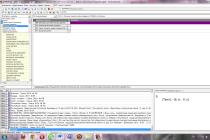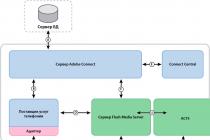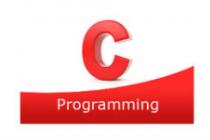The course is intended for basic training of site administrators created on "1C-Bitrix: Site Management"... After completing the course, you will master the basic methods of system administration, as well as replenish your knowledge of the topics studied in the course Content manager.
If you study the course conscientiously, you will learn to:
- manage access to the system, sites, users, user groups;
- work with system tools;
- use the capabilities of the interface to manage the system;
- work with the modules "1C-Bitrix: Site Management" related to the optimization and safety of the site;
- do the job of configuring the web system for optimal performance.
If you have to install the system yourself or transfer the site to hosting, then without a course Installation and configuration Well Installation and configuration intended for specialists installing "1C-Bitrix: Site Management" or "Bitrix24 in a box".
Download course materials in CHM format.
How to take the training course? |
5 / 5 ( 2 votes)
Let's talk in detail about what he has to face, what knowledge he needs to have
You won't be able to hide from new technologies, you need to learn how to manage and use them both in business and for personal purposes. It doesn't always work out quickly (and cheaply). An IT specialist has to study a huge amount of material and test the product before its full implementation (if an integrator is not invited), in a non-standard situation, approach the implementation of the task creatively, look for answers on the Internet and visit all kinds of forums.
The responsibilities of the system administrator can be divided into two parts: daily and infrequently used. The solution to the tasks assigned to him depends on the level of training, the availability of automation tools for changing settings, convenient management of any processes and other factors.
Let's talk about the nuances and specifics of work in the administration of different systems. I will give a list of the requirements (tasks) that we faced for several years, thereby making an overview of the work performed by the system administrator.
Task 1. Display on the web page the fullness of folders located on the FTP server (CentOS)
Basically, to solve this issue, monitoring systems are used; their function also includes a warning about the full space of the specified disk. However, such programs do not provide information about the user and the type of files, and you have to search manually. In our case, recursive folder search was implemented, which is based on the use of the Perl language. The result can be seen in Fig. 1.
An in-depth knowledge of Linux systems is required.
Task 2. Ability to work remotely
Since we have a hybrid IT infrastructure, the connection to different servers occurs different ways: to Windows servers - via the RDP protocol, using the Remote Desktop Connection Manager program, and to Linux servers - via the SSH protocol, starting Putty.
Task 3. Separate work bookmarks from personal ones in the browser
Services with a web interface were added to browser bookmarks, which became more and more and it was necessary to create separate groups to separate between workers and personal. To move work bookmarks to a different location, it was decided to create a separate page for system administrators on the corporate website.
With each new challenge The quick navigation page for the service is bloated, but remains convenient, as large images with captions are used (see Fig. 3). 
Task 4. Monitor the versions of Microsoft OS and software, apply the necessary updates
Updating the OS and software is an important task. After all, there are often updates to server and client systems that help "patch holes" or improve functionality. With the release of new versions, it is necessary to plan actions to minimize costs during business downtime. Here you need to take into account the availability of free disk space and the occupancy of the server by user applications in order to guess a more favorable moment for performing work.
Knowledge of configuring the WSUS role is required.
Task 5. Move to another domain
The transition to another domain will add a lot of trouble, since this procedure is very, very rare, and you will have to pay great attention to planning. The main problem is the migration of Active Directory, because migrating computers, users with passwords is not a trivial task, and there are not so many automation tools here.
The migration process can be described as follows: an additional server is deployed, then the AD DS role, a trust relationship is established between the two forests / domains, the SQL server is installed, and the Active Directory Migration Tool is launched. which allows you to migrate users between domains. After that, the User Profile Wizard utility is installed on the user's computers, with the help of which their profile is transferred.
Knowledge of DNS, Active Directory administration is required.
Task 6. Give up FTP servers on Windows OS
In a hybrid IT infrastructure, it may be necessary to abandon shared folders and FTP server on Windows systems in favor of Linux systems. Here you need to understand how users are granted rights to files and folders.
Knowledge of configuring Linux systems is required.
Task 7. Planned transition to new versions of Windows OS
Moving client machines to newer OS versions can be time-consuming for IT professionals. This process can be automated and accelerated several times.
To do this, you need to enable and configure the WDS role on the server, add a reference image of the freshly installed OS and driver there. This will help you install new Windows-systems on several computers at once over the network, by pressing just a couple of keys.
To obtain additional functions to automate processes, it is convenient to use MS SCCM, with the help of which you can centrally manage downloading and installing updates, installing operating systems and applications, connecting to the desktop of a remote computer, accounting for licensed software, comparing the required settings with existing ones, inventorying computer equipment, and more.
Knowledge of configuring DHCP ools is required. WDS.
It so happened that I spent this spring looking / interviewing people for as many as four vacancies related to system administration. I talked to several dozen people and noticed common errors and problems they face. I expound what I noticed, as well as my thoughts on how to solve these problems.
Scope: novice sysadmins, sysadmin assistants, etc. Experienced administrators, as well as those who have a very specific specialization, will be, if interesting, then useless.
The approximate structure of a series of articles - I will describe how I see the profession of a system administrator, I will analyze the current attitude to the profession on the part of the employer, then I will try to give general information about where to start and where to move on.
What kind of system administrators are there?
To be very rough, there are sisdamines with specialization and without specialization. Usually, a career starts without specialization, then they have several "bent" branches of development and one or two or three, in which their further life takes place (the classic "builds" of characters in RPG correspond very well to this). A sysadmin without specialization is an overgrown enikeyschik (I will analyze this thesis below). However, the demand for a sysadmin of a narrow specialization is lower (if we count in pieces of vacancies) than for generalists of sysadmins (I will also disclose this thesis below). However, with fewer vacancies, the real need for qualified specialists is much higher than there are specialists themselves, that is, the higher the qualifications, the less competition. At some point, you will have several offers from different companies, although you do not plan to leave the current one.(Running a little ahead - the higher the qualifications, the longer it takes to look for a new job, for a top specialist looking for a job for half a year is quite normal. This is typical not only for admins, but also for other professions with high responsibility and narrow specialization).
Who needs sysadmins?
Since a sysadmin is a profession, money is paid for it. The money is usually paid by the company to its employees. This means that companies need sysadmins.So, in accordance with the above classification, there are two important types of employers - profile and non-profile.
Let's start with non-core ones. A non-core employer is a company that is NOT engaged in IT, or is engaged in it in an area far from the system administrator. Bright "antipodes" of IT-ness: travel agencies, real estate companies, car dealers, etc. For them, an administrator is like an "electrician / computer manager". They do not need a complex infrastructure, they do not know about what sysadmins do, what is complex and what is simple. They cannot control the quality of the system administrator's work, and the only sign of his success is "works" or "not". The exact level of development of the company varies greatly and can boil down to "setting up printers and ICQ" to the support of rather exotic programs (this is especially the case for medical institutions). In any case, the IT complexity of their configuration is most often minimal, and there is no need to talk about the real "economy" of the system administrator.
Separately, mention should be made of companies with a high degree of ititization of the non-IT business. (A vivid example is retail chains, banks). Most often, in such a company there is still a person who is able to assess the quality of work and the complexity of the solution, he is usually able to speak with the system administrator in a normal language, and not express himself in bird words about "the Internet does not work", "the processor under the table beeps", etc. etc. However, despite the possible complexity of the configuration, it is quite limited by the budget and the needs of the company, and usually does not require going beyond the minimum to work. The needs of the IT department are perceived as a pure burden that needs to be defended in this very avian language.
The second type of employers is specialized companies. Most of the large Internet sites are such, these also include hosters, data centers (if they do something other than renting units / dedicated), companies whose business is tied to computer technology (cellular companies, processing centers). Note that specialized companies also have non-core administrators (who are engaged in servicing workplaces in the back office), when applying for a job, you need to find out exactly what you will be doing for yourself.
Such companies usually look for employees "for tasks", that is, they need a person who can deal with some area of their activities.
An important feature of specialized companies is the constructiveness of what you do. You are no longer a "computer electrician", you are the person who determines how well a company's core business tool will work. There is usually no concept of a "technology ceiling" or bird language here.
What is a general purpose system administrator?
In fact, such a profession does not exist. It so happened that many companies want to have a person on the staff who will be responsible for "everything computerized." Usually these are non-core companies. And they want one or two, not three dozen certified specialists. (For those who want to talk about their brilliant present in the person of an Oracle administrator, etc. - I repeat, we are talking about the market situation). Hence the simple rule: they will want everything from you right away. Moreover, in the future you will find that superficial knowledge about everything is not particularly appreciated. However, these jobs are a great place to start - you can try everything and find out what you like best.Thus, there is an obvious contradiction between the work of a novice system administrator (more precisely, the requirements that are imposed on him) and further career growth. This contradiction does not appear immediately, but after a while, when a person masters work.
However, let's get back to the work of the system administrator. Here is a list of the areas most commonly encountered by a sysadmin. Please note - these areas are far beyond the bounds of reason, but - see above, they want everything from you, at once, and preferably for little money:
What is meant by system administration?
(we are talking about universal system administrators, of course)- Network administration. In its minimal form, it is a "desktop configuration guru. wifi router”, At the maximum - a person who plans a network for 1000 people with branches in five cities. This includes: network topology (which piece of hardware to stick into which and why), SCS planning (where and how many sockets), configuration of nat "s and vpn" s, etc. All sorts of Internet access control services - squid, IIS, smart and dumb firewalls, IDS, etc. go to the same heap.
- Administration of workstations. Burned-out power supplies, reinstalling Windows, solving a problem with another bank-client, fixing a broken print, solving the problem "how can I open this file", fighting viruses for windows, etc. The minimum level is to establish an office, the maximum level is to develop group policy for automatic rolling new version software that does not have msi (you have to do it yourself). At the same time, problems with automatic deployment of workstations, backups, secure deletion, etc. are solved.
- Centralized authorization. This is usually the Active Directory. One of the "purest" disciplines, it is also one of the most difficult. Minimum level - add / remove users, drive workstation to the domain. The maximum is to implement automatic assignment of policies to users of a given OU in case of access to a computer in one of the nodes of a neighboring tree in the forest (we all love this terminology, yes).
- Mail. It is conditionally divided into three worlds: small Windows mail servers (Kerio class), the mighty and terrible Exchange, a normal linux / freebsd server with any sane mail server(postfix, exim, sendmail, etc.). Minimum level: add mailbox, add another domain and add an additional email to the user. Maximum level: set up mailing ticket system, mailing list, spam filtering, automatic creation of mailboxes, etc.
- Databases - Most often it is part of another infrastructure. Specialized DBAs are a league of their own. Minimum level: install, restart, connect in the application, add / remove a database. Usually the same ability to make a backup and restore it (which is more difficult). There is no maximum level because if you know well any DBMS, SQL, are able to deploy a server with an active asynchronous subscription to another database, then this is not quite a "universal system administrator" anymore. A conditional ceiling can be considered the ability to fix a broken MyISAM database.
- 1C. Despite the fact that 1C is such a company that produces toys and educational discs, “1C” usually means 1C: Enterprise, 1C: Accounting and other nightmarish offspring of the perverted union of accounting and programming. A person who knows a lot about "this" is called a "1C programmer" (not to be confused with normal programmers). Minimum level: create a new database, add / delete a user. Maximum level: correct the configuration, add a field to the report, deal with how 1C lies with SQL.
- Websites. This can mean almost anything - from "ordering shared hosting" to "solving a performance problem in django-orm when working with postregsql." Copywriting, search engine spam (SEO), web design, web programming, etc. can easily be included in this area. Minimum level: to be able to do a little typesetting in html, there is no maximum because the different professions are listed. By the way, there is a real system administrator among them: web-server administrator - load ballancing, failover, high avablility, clusters, etc., which again goes beyond the category of "universality".
- Access control systems and video surveillance. Most often they are made by specialized organizations, however, it happens that the system administrator also has to tinker. Minimum level: pick up one more camera, register an access card. Maximum level: auto-export of video to archive, synchronization of all types of control. The future is most likely not an admin one, as far as I know, administrators usually dislike this area.
- PBX. Another area that falls into system administration by accident. Minimum level: add forwarding, connect an additional incoming line. Maximum level: raise your asterisk with a voice menu by 300 points, a sip-skype gate, routing capable of switching between IP, copper and E1 depending on conditions. It also often includes telephone legacy, "knocking crowns", sorting out all kinds of plesiosynchronous incoming lines, E1, etc. I repeat, this is not an admin specialization - in general, telephonists are engaged in this.
- Print / scan. Most often, a trivial task, until you have to make printers networked and solve the problems of all kinds of industrial printers. Minimum level: pick up the printer; Maximum level - solve the problem of color profiles, connect the label printer as a network, automatically assign printers when the user logs on to the computer.
Summing up: it is impossible to be anything but a professional, but at least it is more or less good to know all this. But you need to know. It is on this contradiction that the career of a novice administrator is built.
Separately, it must be said about those with whom you come across during the interview. Unlike other cases, people who are far from computers are 99% likely to interview you. And they will check not your knowledge, but your adequacy and "quick answers". If you shower them with clever words, you will not be perceived adequately.
Who is the System Administrator Assistant?
... aka enikeyschik.This is the person who is blamed for all the poorly formalized and tedious work, communication with users and fiddling with iron.
The main things that an enikeys usually do:
- helpdesk - help desk. Answer to phone calls employees, show you how to press any key, help you find the column sorting button and pick out a disk stuck in the drive.
- Preparation of workstations - installation, connection, wiring, OS and software installation, etc.
- The solution to all non-verbal garbage with custom applications - especially the software from the tax and bank clients.
- Correction of SCS (new sockets, transfer of existing ones), diagnostics of problems, switching, if there are crosses, then their expansion.
Note that the "system administrator assistant" is most often practically a consumable with a high turnover. In one company, it came to the point that the head of the department did not know by name all the assistant administrators (3 pcs), because at least someone left once a month and a half.
From the point of view of an enikeyschik - such work is a springboard to system administration, but by no means the main profession.
We will talk about the profiles of specialized system administrators a little later, but for now, about a career within these two professions.
Who goes to enikeyschiki?
My experience says that people usually go there without specialized education. Most often they are young, although I interviewed my 42-year-old uncle for the position of "Assistant System Administrator". Despite the fact that the duties described above seem to be almost trivial, for many this is the most difficult step. Becoming an administrator from the Administrator Assistant is easier than becoming a sysadmin assistant.The main reason: they will want from you knowledge that is comparable to the administrator. Moreover, half of this knowledge is not presented anywhere in books and is a passing experience (for example, fiddling with bank clients). Another important feature is the "feel of computers", I have met many people at interviews, they simply could not appreciate the naturalness of what is happening in the computer, which greatly interfered with their analysis of the situation. This is a non-verbal experience, it appears after long work with computers.
Career
A typical career looks like this: an assistant system administrator (or an administrator in a small company with 5-8 people), an administrator, an administrator (maybe 2-3 more times as an administrator), the beginning of a real specialization. Specialization can be of two types: improving the technical level (instead of superficial knowledge about everything, deep knowledge about a little), and an administrative career - head of the IT department, CIO (CIO), etc. These are two completely different areas - the first has to do with computers, the second has to do with people, personnel management, planning, budgeting, meetings, etc.The transition from stage to stage is determined by several factors: 1) Theoretical knowledge 2) Practical skills 3) Knowledge of realities 4) Connections and relationships with other people (both within the company and outside it).
Among this, the third point looks not very clear. What are "realities"?
Knowledge of realities
It is about knowing what is usually used in companies, how much it costs and how it works. Relatively speaking, this is a person who knows that modern offices put 5e, and not ThickEthernet (as described in the 1993 book), that putting the 6th category is unjustified (although this is advised by the manufacturer's booklet), that programmers need an eye and an eye, otherwise the company will be tightly tied to a specific person, etc. In other words, knowledge of realities is the ability to say what exactly is needed in terms that will be understandable to both the supplier and others.Skills
Until a certain moment, almost everything is decided. Without some skill set, no theoretical knowledge will help. It simply includes "many kilometers behind the wheel" - solving many problems, skills in working with the console and typical software, knowledge of the symptoms of problems, knowledge of typical solutions for typical cases.Theory
At first, theoretical knowledge is not very important, since you do not have the proper feel of computers to perceive them correctly. However, if you do not invest your time and effort in theoretical knowledge, then you will not quickly notice how you get stuck at your level. The salary will grow slightly, perhaps there will be a career, but the it-shny world around will stop changing. The same technologies, the same glitches. Lack of theoretical knowledge does not interfere with work - it interferes with understanding how it works and how to fix something that is not working. Experience greatly replaces theory in the sense of solving problems, but does not give the strength to see the situation in general, to find the real reason (instead of the reason).Connections
Yes, they mean a lot, especially in the case of a career as an IT director. The only way to avoid the need to have many acquaintances and play the "king of the hill" office games is professionalism (read, experience and theory). If not, then only personal connections, knowledge of people, the ability to feel them, the ability to order them and in every possible way to guide them. According to my observations, about 30% of enikeys find their first job by acquaintance.For highly specialized administrators, communications mean something completely different. The narrower the specialization, the smaller the range of employers, the more likely it is to know everyone or almost everyone. Having a familiar name greatly reduces the time it takes to find a job. In this case, we are not talking about "connections" in the everyday sense, but about professional fame.
The Research Center of the portal site in April 2008 considered the proposals of employers and the expectations of applicants for the position " System Administrator"For 6 cities of Russia.
The functional responsibilities of the system administrator include configuration, setup and administration personal computers, peripherals and servers, support for local area (LAN), wide area (WAN) and telephone networks. The system administrator is also responsible for installing, configuring, updating the operating system and other things. software, including anti-virus, it ensures the information security of the system, backs up and restores data. In addition to the above, the system administrator is responsible for maintaining technical documentation and advising users of the system.
The study found that Unix maintainers earn more than their Windows counterparts. Their average earnings in the capital are 50,000 and 40,000 rubles. respectively. In St. Petersburg, Unix specialists receive an average of 38,000 rubles. per month, system administrators performing Windows support, - 30,000 rubles. Other Russian cities that have become the objects of our research repeat the trends indicated for the two capitals, with the only difference that the level of wages in them is significantly lower than in Moscow and St. Petersburg (see table below).
The study of the database of resumes and vacancies showed that for every 10 vacant places in the capital companies working with operating system Unix, 15 applicants apply, and in firms that chose Windows, there are 6 applicants for the same number of vacancies. In St. Petersburg, for every 10 vacant jobs, there are 10 and 13 candidates, respectively. It should be noted that, since the Windows operating system has become much more widespread in Russia, the number of employers offering system administrators to work with this system, and the number of applicants applying for work with the operating system Windows system, is several times the number for Unix.
Novice system administrators who own several versions of the Windows operating system, demonstrating a good knowledge of computer components and peripheral equipment, earn from 20,000 to 30,000 rubles in the capital, and from 15,000 to 23,000 rubles in the city on the Neva. Newcomers to Unix administration who know the principles of networking and network protocols and those who have experience working on Linux servers, in Moscow they earn from 25,000 to 40,000 rubles, in St. Petersburg - from 18,000 to 30,000 rubles. In this salary range, employers do not impose strict requirements on the education of candidates: both specialized secondary and incomplete higher education and higher technical or IT education are suitable, but work experience in the specialty should be at least a year.
Up to 50,000 rubles. in the capital and up to 40,000 rubles. in St. Petersburg, specialists who know the basics of administration not only Windows and local area networks, but also 1C, as well as the principles of MS Exchange 2003, MS ISA 2004. Applicants applying for this salary must demonstrate excellent skills in working with the Windows NT / 2000 / XP / 2003 Server operating system. Employers also require specialists of this level to know the principles of construction and operation of modern computing systems and computer networks, methods of information protection. System administrators working with Unix are required to have knowledge of UNIX (FreeBSD, Linux) and Windows 2003 Server, along with knowledge of networking equipment. The maximum possible salary for such a functional is 65,000 rubles in the capital, and 54,000 rubles in St. Petersburg. In this salary range, specialists who support the Unix system are encouraged to have knowledge of Cisco, experience in configuring and optimizing MySQL, Apache, PHP, and organizing backup databases is required. Applicants applying for such a salary must demonstrate proficiency English language at a level sufficient for reading technical documentation, and also have at least 2 years of experience in the specialty.
System administrators with experience in their specialty in a small company for at least 3 years, or at least 1 year at a large enterprise, who are familiar with methods of monitoring and diagnosing server systems, both Windows and Unix, who are well versed in network technologies and protocols, Shell and Perl programming languages, depending on their specialization, they have every right to apply in the capital for a salary of up to 90,000 (for Windows) and 120,000 rubles. (for Unix), in the city on the Neva - up to 80,000 rubles. and 100,000 rubles. respectively. In this salary range, professional certifications are encouraged.
The profession of a system administrator is one of the purely male ones (96% of applicants for this position are representatives of the strong half of humanity), moreover, it is chosen most often by men who have not yet turned 30 (73% of all system administrators). A university diploma can be presented by 55%, and a certificate of completion of specialized courses - 40% of applicants. 58% of candidates for the position of a system administrator speak English at a level sufficient to read technical documentation.
Study regions: Moscow, St. Petersburg, Yekaterinburg, Nizhny Novgorod, Novosibirsk, Rostov-on-Don.
Research time: April 2008
Unit of measurement: Russian ruble.
Object of study: employers' proposals and expectations of applicants for the position of "System Administrator".
Typical functionality:
- Configuration, setup and administration of personal computers and peripheral devices;
- Support for local (LAN), global (WAN), telephone networks;
- Configuration, setup and administration of servers;
- Installation, configuration, updating of OS, other software (including anti-virus);
- Backup and data recovery;
- Provision information security systems;
- Maintenance of technical documentation;
- Consulting users.
Position requirements: type of employment - full time.
The level of remuneration of a specialist is determined by the well-being of the company, the list of job responsibilities, work experience in the specialty, the level of development of professional skills.
Analysis of information on the levels of remuneration of a specialist:
(excluding bonuses, additional benefits and compensations)
| Region | Minimum | Maximum | Fashion | Median | Lower quartile | Upper quartile | Average | Demand index (resume / vacancies) |
| Moscow (Windows) | 20 000 | 90 000 | 40 000 | 40 000 | 30 000 | 50 000 | 39 800 | 0.6 |
| Moscow (Unix) | 25 000 | 120 000 | 50 000 | 50 000 | 40 000 | 65 000 | 52 400 | 1.5 |
| Saint Petersburg (Windows) | 15 000 | 80 000 | 25 000 | 30 000 | 23 000 | 40 000 | 31 020 | 1.3 |
| Saint Petersburg (Unix) | 18 000 | 100 000 | 35 000 | 38 000 | 30 000 | 54 000 | 38 800 | 1 |
| Yekaterinburg (Windows) | 12 000 | 60 000 | 25 000 | 25 000 | 18 000 | 30 000 | 23 800 | 2 |
| Yekaterinburg (Unix) | 15 000 | 75 000 | 30 000 | 30 000 | 23 000 | 34 000 | 30 700 | 1 |
| Nizhny Novgorod (Windows) | 10 000 | 50 000 | 20 000 | 21 000 | 16 000 | 25 000 | 20 090 | 5 |
| Nizhny Novgorod (Unix) | 12 000 | 62 000 | 25 000 | 26 000 | 20 000 | 30 000 | 25 200 | 1 |
| Novosibirsk (Windows) | 12 000 | 56 000 | 22 000 | 22 000 | 18 000 | 28 000 | 22 300 | 0.3 |
| Novosibirsk (Unix) | 14 000 | 70 000 | 27 000 | 30 000 | 22 000 | 32 000 | 28 700 | 1 |
| Rostov-on-Don (Windows) | 10 000 | 50 000 | 20 000 | 20 000 | 15 000 | 25 000 | 20 600 | 2 |
| Rostov-on-Don (Unix) | 12 000 | 60 000 | 25 000 | 25 000 | 19 000 | 30 000 | 25 700 | 2 |
Explanations for the table "
| Region | Range I | Range II | Band III | |
| Moscow (Windows) | up to 30,000 | 30 000 - 50 000 | over 50,000 | |
| Moscow (Unix) | up to 40,000 | 40 000 - 65 000 | over 65,000 | |
| Saint Petersburg (Windows) | up to 23,000 | 23 000 - 40 000 | over 40,000 | |
| Saint Petersburg (Unix) | up to 30,000 | 30 000 - 54 000 | over 54,000 | |
| Yekaterinburg (Windows) | up to 18,000 | 18 000 - 30 000 | over 25,000 | |
| Yekaterinburg (Unix) | up to 23,000 | 23 000 - 34 000 | over 34,000 | |
| Nizhny Novgorod (Windows) | up to 16,000 | 16 000 - 25 000 | over 25,000 | |
| Nizhny Novgorod (Unix) | up to 20,000 | 20 000 - 30 000 | over 30,000 | |
| Novosibirsk (Windows) | up to 18,000 | 18 000 - 28 000 | over 24,000 | |
| Novosibirsk (Unix) | up to 22,000 | 22 000 - 32 000 | over 32,000 | |
| Rostov-on-Don (Windows) | up to 15,000 | 15 000 - 25 000 | over 25,000 | |
| Rostov-on-Don (Unix) | up to 19,000 | 19 000 - 30 000 | over 30,000 |
Explanations for the table "
The study of an array of data on salaries in the studied regions allows us to identify several main salary ranges, each of which is characterized by a certain typical set of requirements and wishes for the candidate. Each subsequent salary range includes the requirements formulated for the previous ones.
| № | Salary range | Requirements and wishes for professional skills (Windows) |
| 1 | I | - Knowledge of Windows OS (several versions); - Skills of working with peripheral equipment; - Good knowledge of computer components, peripheral equipment; |
| 2 | II | - Knowledge of the principles of construction and functioning of modern computing systems and computer networks, methods of information protection; - Knowledge of the basics of 1C administration; - Knowledge of the principles of MS Exchange 2003, MS ISA 2004; - Experience in local network administration; - Excellent skills in working with OS Windows NT / 2000 / XP / 2003 Server; |
| 3 | III | - Knowledge of methods of monitoring and diagnostics of server systems; - Excellent knowledge of networking technologies and protocols; - Knowledge and experience of working with Unix / Linux products is encouraged; - Certificates are welcome; - Work experience as a system administrator from 3 years / from 1 year with a large fleet of machines / in a large company. |
| № | Salary range | Requirements and wishes for professional skills (Unix) |
| 1 | I | - Secondary vocational / incomplete higher / higher education (preferably technical, IT); - Knowledge of the principles of networking and network protocols; - Experience in administering Linux servers; - Experience in installing, configuring, maintaining and updating Linux; - Work experience as a system administrator at least 1 year. |
| 2 | II | - Knowledge of UNIX (FreeBSD, Linux), Windows 2003 Server is encouraged; - Knowledge of English at the level of reading technical documentation; - Knowledge of network equipment (Cisco is welcomed); - Experience in configuring and optimizing MySQL, Apache, PHP; - Experience in organizing backup databases; - 2+ years of experience as a system administrator. |
| 3 | III | - Knowledge of Shell and Perl programming languages; - Experience in administering MS Windows OS + Unix-class OS (HP UX, Solaris), Linux with a large number user accounts; - Experience in administering server hardware and server software in large companies; - Experience with Cisco equipment. |
Statistical data:
- The age range of system administrators most demanded by the labor market is 22-40 years old; system administrators under the age of 30 make up about 73% of the total number of specialists, at the age of 30 to 40 - about 21%, at the age of 40-50 - about 6%;
- About 96% of system administrators are men;
- 27% of system administrators speak English at the basic level, about 58% - at the level of reading specialized literature, about 10% - at the conversational and fluent levels;
- 55% of system administrators have higher education, about 26% - incomplete higher education, about 14% - secondary specialized;
- 40% of system administrators have completed specialized courses or have qualification certificates;
- 50% of system administrators have a category “B” driver's license.
Blog embed code
System Administrator
In April 2008, the research center of the SuperJob.ru portal reviewed the proposals of employers and the expectations of applicants for the position of "System Administrator" for 6 cities of Russia.














